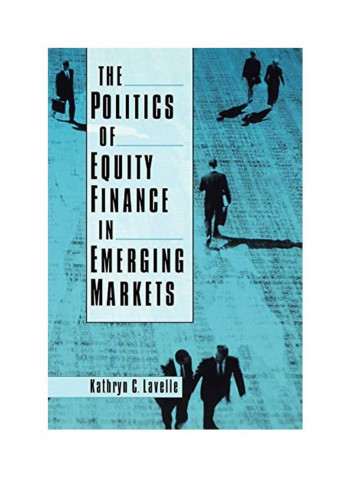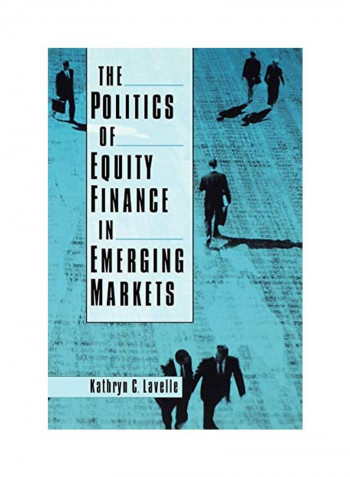The Politics Of Equity Finance In Emerging Markets Paperback
Recommend
Sort by
Rating
Date
Specifications
Author 1
Kathryn C. Lavelle
Book Description
The author uses a political science paradigm to explain the growth of emerging equity markets. She departs from conventional economic explanations and examines politics at the micro-level of large issues of emerging market stock. The second half of the book presents case studies dealing with emerging market countries in Latin America, Asia, Russia and Eastern Europe, Africa and the Middle East. The case studies connect the regional, state, and firm levels to detail the multiple ownership and control arrangements, and to dispel the notion that mere quantitative growth of these markets will lead to a convergence in financial institutional structures along the lines of the industrial core of the world economy.
ISBN-13
9780195174106
Language
English
Publisher
Oxford University Press, USA
Publication Date
14 Oct 2004
Number of Pages
294
Editorial Review
Kathryn Lavelle explains in clear, succinct terms how national political processes lead to equity market growth, and how that growth affects the process of corporate governance - and why it sometimes fails to do so as governments maintain a continuing grip of firms (especially those formerly state-owned). She links this discussion - through case studies focusing on Eastern Europe, Asia, Latin America and Africa - to cross-border equity flows and global capital markets, and to the role of international development organizations. The discussion covers the appearance of new financial products and new kinds of financial intermediaries in emerging markets, notably viable equity markets. Much of the discussion provides good news, although there are plenty of shadows involving missed opportunities and he potential for economic contamination through volatile cross-border capital flowsIR. * Ingo Walter - The Stern School of Business - NYU * Kathryn Lavelle explains in clear, succinct terms how national political processes lead to equity market growth, and how that growth affects the process of corporate governance - and why it sometimes fails to do so as governments maintain a continuing grip of firms (especially those formerly state-owned). She links this discussion - through case studies focusing on Eastern Europe, Asia, Latin America and Africa - to cross-border equity flows and global capital markets, and to the role of international development organizations. The discussion covers the appearance of new financial products and new kinds of financial intermediaries in emerging markets, notably viable equity markets. Much of the discussion provides good news, although there are plenty of shadows involving missed opportunities and he potential for economic contamination through volatile cross-border capital flowsIR. * From the Foreword by Ingo Walter - The Stern School of Business - NYU




